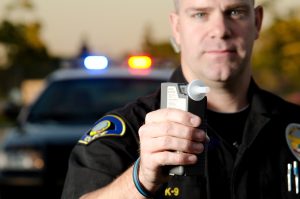
St. Patrick’s Day is a fun holiday celebrating Irish culture and is observed by many people here in New Jersey. The holiday is often celebrated through partying, gathering at bars, and the consumption of alcohol. Unfortunately, this is where St. Patrick’s Day can sometimes land people in legal trouble, and it can even cost lives. According to the National Highway Traffic Safety Administration, 287 Americans lost their lives in St. Patrick’s Day-related drunk driving crashes between 2016 and 2020. If you are planning on observing St. Patrick’s Day this year, you need to understand how to celebrate safely and legally. In that spirit, The Law Office of Andrew S. Maze is happy to present this guide on how and why to prevent St. Patrick’s Day drunk driving.
St. Patrick’s Day Drunk Driving Prevention Tips
- Remember that it is never safe or legal to drive drunk.
- If you are going out drinking with a group of friends, select a designated driver ahead of time or plan to call an Uber, taxi, or another ride to safely get home.
- Never allow a friend or colleague to drive home drunk. Instead, arrange a safe way for them to get back home, such as an Uber or designated driver.
- If you are picked to be a designated driver this St. Patrick’s Day, do not drink any alcohol. Your associates have placed their trust in you, and you should not betray that trust by risking their safety.
- Never ride in a vehicle driven by someone who has been drinking.
- Exercise additional caution while driving home and keep an eye out for drunk drivers. Contact law enforcement to report any drunk drivers you see out on the road.
Prevent St. Patrick’s Day Drunk Driving as a Party Host
- Make sure all of your guests select designated drivers in advance or arrange another way for your guests to get home safely.
- Serve food and non-alcoholic beverages at your party for designated drivers and your other guests to enjoy. On St. Patrick’s Day, serving foods that are colored green is a fun and safe tradition.
- Consider not serving alcohol for the last few hours of your party to allow your guests to start sobering up before they leave. You should also keep serving non-alcoholic drinks and food for the entire length of your party.
- Confiscate the car keys of any guest who is attempting to drive home after drinking, and arrange a safe way for them to get home.
New Jersey DUI Laws
Under New Jersey law, a person is guilty of a DUI (driving under the influence) if they are operating a motor vehicle with a Blood Alcohol Concentration (BAC) of 0.08 percent or greater. However, even if your BAC is below 0.08 percent, if you consume any amount of alcohol that impairs your driving, you can be convicted of drunk driving. You can also be charged for permitting another person with a BAC of over 0.08 percent to operate your motor vehicle. The punishments for drunk driving vary with each offense. Additional penalties can also be levied against you if you are a minor, if you are the legal guardian of a minor who was in the car at the time of your crime, or if your license has already been suspended for a previous drunk driving offense.
First Offense
The penalties for a first-time DUI offense include a fine of $250 to $400, imprisonment for up to 30 days, and a car insurance surcharge of $1,000 a year for 3 years. Additional punishments include paying numerous fees, spending six hours a day for two consecutive days in an Intoxicated Driver Resource Center (IDRC), and the installation of an ignition interlock on your vehicle for three months. An ignition interlock is a device that requires you to give a breath sample and prove your sobriety in order to start your car’s engine. The fines and period of time you will have to use an ignition interlock can also be higher if your BAC is above 0.10.
Second Offense
The penalties for a second-time offense include a fine of $500 to $1,000, imprisonment for at least 48 consecutive hours and up to 90 days, the suspension of your license for at least a year and up to two years, and a car insurance surcharge of $1,000 annually for three years. Additional penalties include 30 days of community service, paying numerous fees, meeting the requirements of the IDRC program, and the installation of an ignition interlock on your vehicle for the duration of your license suspension, plus two to four years after its restoration.
Third Offense
Finally, the penalties for a third-time offense include a fine of $1,000, an 8-year license suspension, and imprisonment for 180 days, with the court being able to lower this time by up to 90 days in which a person is in an approved drug or alcohol inpatient rehabilitation program. Additional penalties include 30 days of community service, meeting the requirements of the IDRC program, a car insurance surcharge of $1,500 a year for three years, paying numerous fees, and the installation of an ignition interlock on your vehicle.
Contact Andrew Maze
If you are caught drunk driving this St. Patrick’s Day and are facing a DUI charge, you need effective and experienced legal representation. We are ready to evaluate your case, explore every available legal defense, and fight for your future. If you need our help, contact The Law Office of Andrew S. Maze for a consultation.